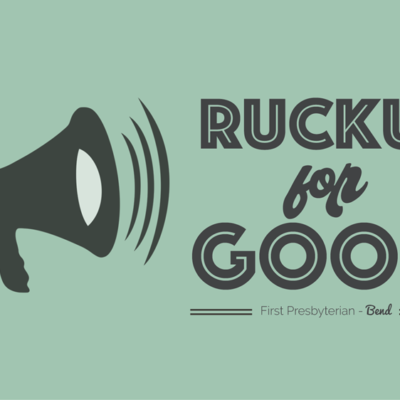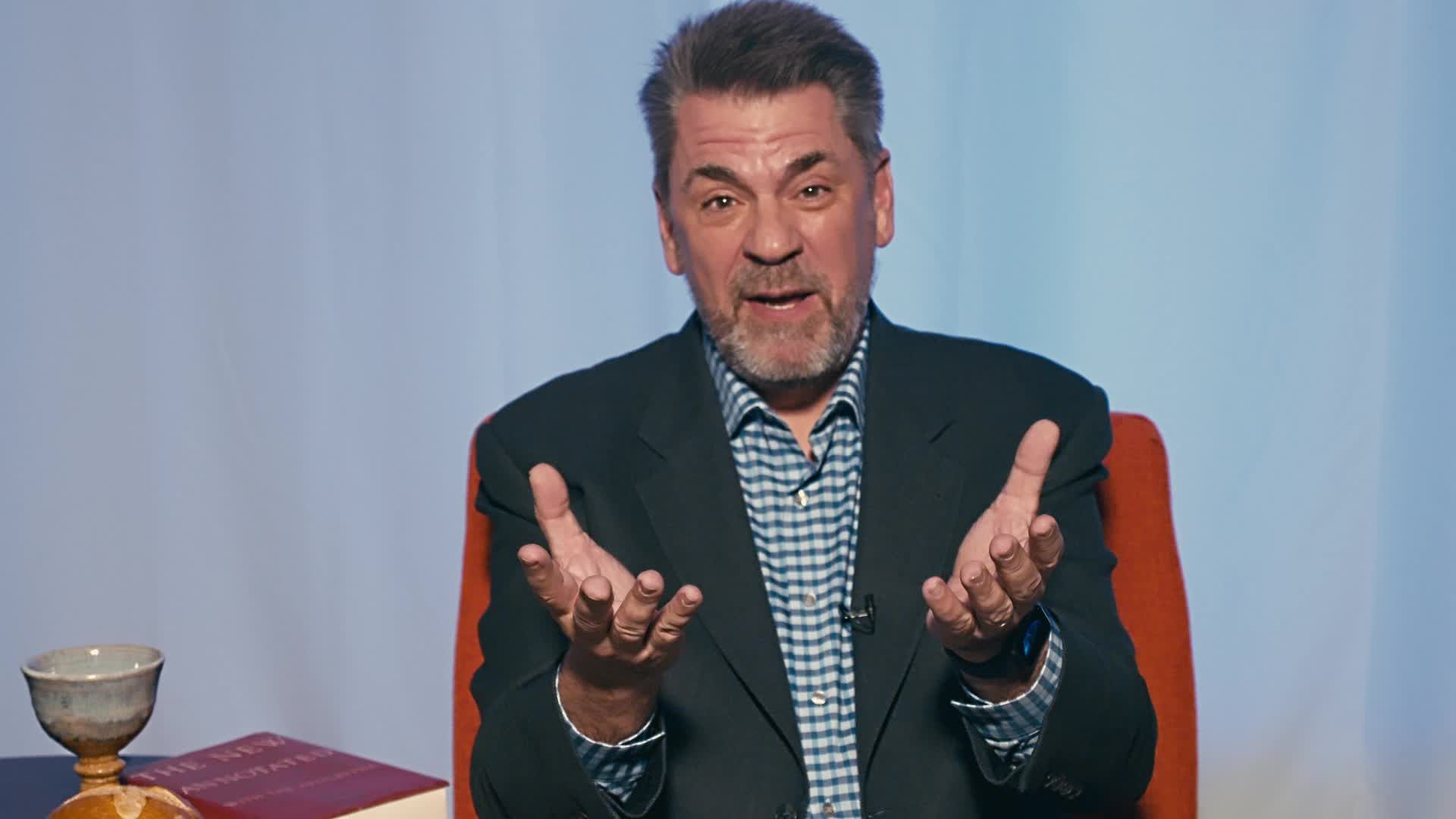Apr 30th: Feeding the Hungry, with Rev. Dr. Steven Koski.
A Part of the Series:
Other Articles in:
Transcript:
Jesus said, I was hungry, and you gave me something to eat. And he was asked, when did we see you hungry, and give you something to eat? And Jesus answered, whatever you do for the most vulnerable of these brothers and sisters of mine, you do for me.
You know, every Sunday at First Presbyterian, we pray, the prayer that Jesus taught that he taught the disciples called the Lord’s Prayer. And I like to introduce this prayer by saying, let’s be bold to pray. Because when we pray this simple prayer, we are literally asking God to use us to change the world. And one sentence of the prayer says, Give us this day, our daily bread. Now notice, it doesn’t say, you know, give me my bread. It says, Give us our bread. You know, bread for myself is a material question. Making sure there’s enough bread for our neighbors is a spiritual one. Give us our bread is really a challenging prayer in our culture of oak overconsumption where more people will die from too much bread than too little.
I have a clergy clergy colleague who took his church on a on a work trip to Haiti, the poorest nation in the Western Hemisphere, and his mission team worshiped in a rural Haitian Presbyterian Church. Now the church was packed with about 200 men, women and children sitting on a dirt floor. Most of the children had red tipped hair, the side of malnutrition. And they came to the party in the service like, like we do, when they prayed the Lord’s Prayer. And when the small Haitian church prayed the phrase, Give us this day, our daily bread, they lifted their arms to heaven. Like they were begging pleading with God, to give them bread, so that the children would have what they needed to simply to live to survive that day. The service concluded with communion, my clergy colleagues, notice there were several large loaves of bread on the Community Table. And when people came forward for communion, this Haitian pastor just tore off large chunks of bread for the children. Because he realized that that would probably be the only bread many of those children would would eat that week.
Now imagine if you are or your children are food insecure? Or even starving? Praying give us our bread would have a whole different meaning. What if we changed the words to give everyone the bread they need today?
We’re praying not just for ourselves, but on behalf of everyone who is hungry. We’re praying for those hungry children in Haiti. We’re praying for those who line up to receive a meal at family kitchen. We’re praying for those who contact the church every day, hoping for food vouchers to feed their children. We’re praying for everyone on a street corner holding a sign that says I’m hungry. Anything helps. We’re praying for the one in nine people in the world. What a nine who are food insecure.
We’re praying for the one in five children born into poverty in the United States, the richest country in the world. One in five children who will go to bed hungry tonight. Did you know that 45% of all child deaths in the world are from malnutrition. Give everyone this day. Their daily bread give everyone the food they need to live today. I believe that’s how Jesus intends for us to pray this prayer so that we might become convicted and be part of the answer to our prayer.
In his book, God’s politics, Jim Wallace talks about how we came to see to see his faith through a, through a different lens. He was attending Trinity Divinity School, a conservative evangelical Seminary in Illinois. And while he was there, he did an internship in the inner city in Chicago. And he became really interested in what what the Bible had to say about the poverty he encountered in the inner city. And he discovered that one of the defining characteristics of the Old Testament the Hebrew Bible is the attention it pays to the poor, the weak, the vulnerable. I mean, at the very heart of the Law of Moses is Deuteronomy 15. Where it says, Do not be hard hearted, toward your needy neighbor. Rather, open your hand. The Book of Leviticus orders that a quarter of every field is to be left on harvested so that the poor will have something to eat. The prophet Amos encouraged those who trampled the poor ignored the needy, to repent.
The prophet Micah said, you know, God doesn’t care about our worship assemblies. But what does the Lord require of us, to act justly, to love mercy, to walk humbly with our God? Jesus was asked, out of the 623 laws that make up the law of Moses, which one is most important? And Jesus said, Love the Lord your God with all your heart, mind, soul and strength. And love your neighbor, as yourself. Jesus said, to love God is to love your neighbor, to love your neighbor, is to love God. So Wallace began to wonder how is it possible to love your neighbor, if their needs are less important than your own needs? How can we love our neighbor, if our plate is full, and there’s his empty wall is concluded that maybe we’re not as concerned with the empty plates of our neighbors as God desires, because we’re too full of our own privilege.
Now, Wallace was shocked. Because this was not what he was taught in church growing up. I mean, he was taught that salvation, salvation was a personal matter, you know, related to what happens after you die, and that it was somehow separate from the daily needs of human beings. And Wallace discovered there is no personal relationship with Jesus. That doesn’t transform our worldview, about privilege, and the needs of others. There is no personal relationship with Jesus that doesn’t open our eyes to see and to meet Jesus and others, especially those who are most vulnerable. You know, we’re not called to feed the hungry, and care for the most vulnerable to feel good about ourselves. But so that we might grow into the likeness, and image of Christ.
We don’t feed the hungry to earn our way into heaven. But so that heaven might actually find a way into us. So after all of this, Wallace Reid dedicated his life to Christ, which meant dedicating his life to meeting Christ and those who are poor, hungry, and in need Viktor Frankl survived the concentration camps of Nazi Germany. And he observed that those who survived the the worst kinds of evil imaginable that those who survived all shared something in common, and it didn’t have anything to do with age, gender, physical strength.
Frankl observed that those those who didn’t survive took the little rational bread that they were given. And they close their fists and kept it to themselves. And he observed that that those who survived those who manage to survive, took the little ration of bread they were given open their hands and shared it with the elderly, the sick, and children. It turns out the kind of love where you risk opening your hands, sharing what you have, is more powerful than the worst kind of evil. You know, we sometimes forget that, that our need to share, to give to care to love is every bit as great as the needs of the hungry, and poor.
You know, for those of us who, who may not be physically hungry, praying give us our bread is asking God to fulfill our deep need and hunger for meaning and purpose. Our deep need to live and love in a way that reflects our very best selves that allows us to practice the best of what we believe. And that allows us to become more and more shaped into the image and likeness of Christ. A man ask God to show him to show him both what Heaven and Hell look like. God took him to a place where people gathered around a banquet table with the most delicious smelling stew in front of them. And the people around this banquet table didn’t look at each other. They didn’t speak to each other. They look miserable. They were starving. Because the spoons they were given were longer than their arms. And they couldn’t get the stew to their mouths. And God said this is how the man asked to see heaven. And to his surprise, he was taken to a place that looked exactly the same. Same banquet table same same people gathered around the table same delicious feast, same long spoons.
This time though. The people were laughing. They were listening to each other stories they they appeared full and happy. This is heaven. God said well, what’s the difference is the difference as the man in this place God said the people have learned to feed each other. Jesus said For I was hungry. And you gave me something to eat and feeding the hungry and caring for the most vulnerable. We just might discover. We are the ones whose souls are fed and whose hearts are full.
May it be so

